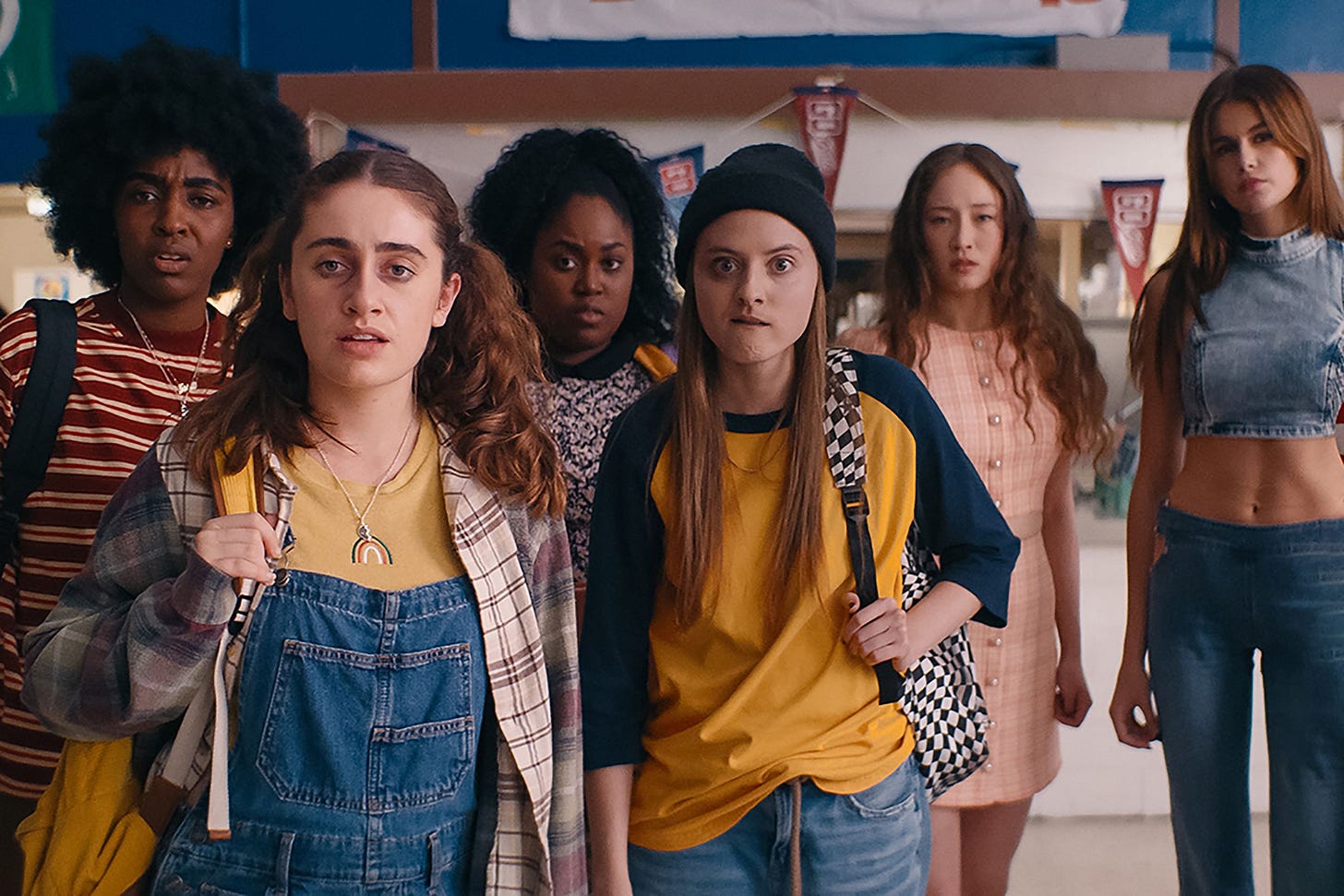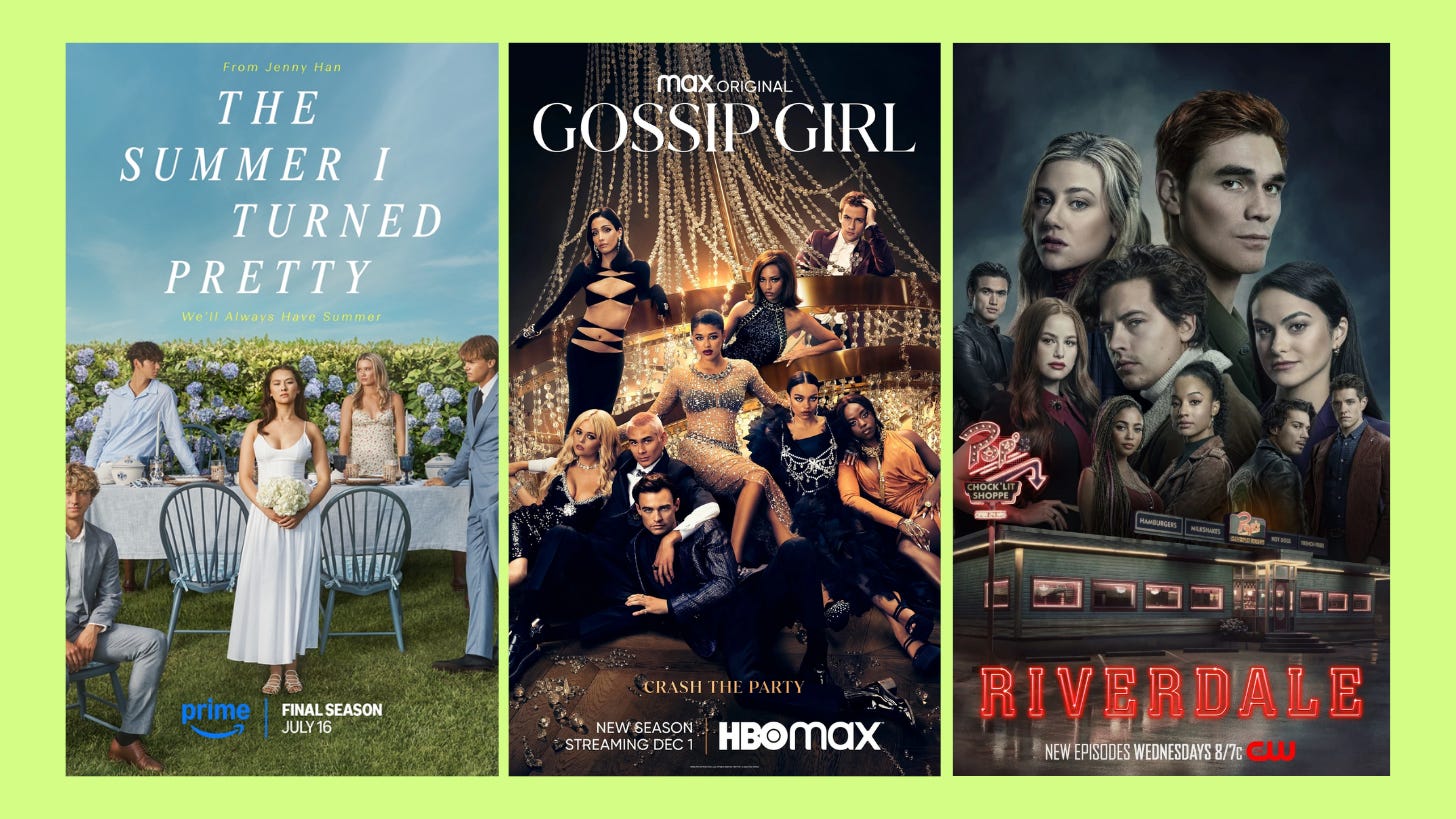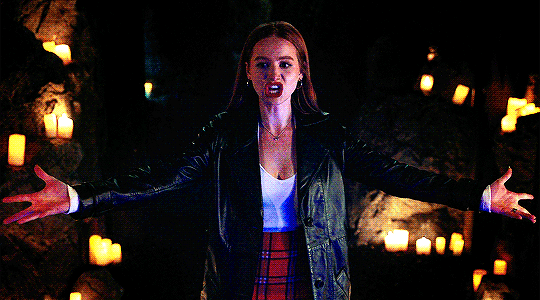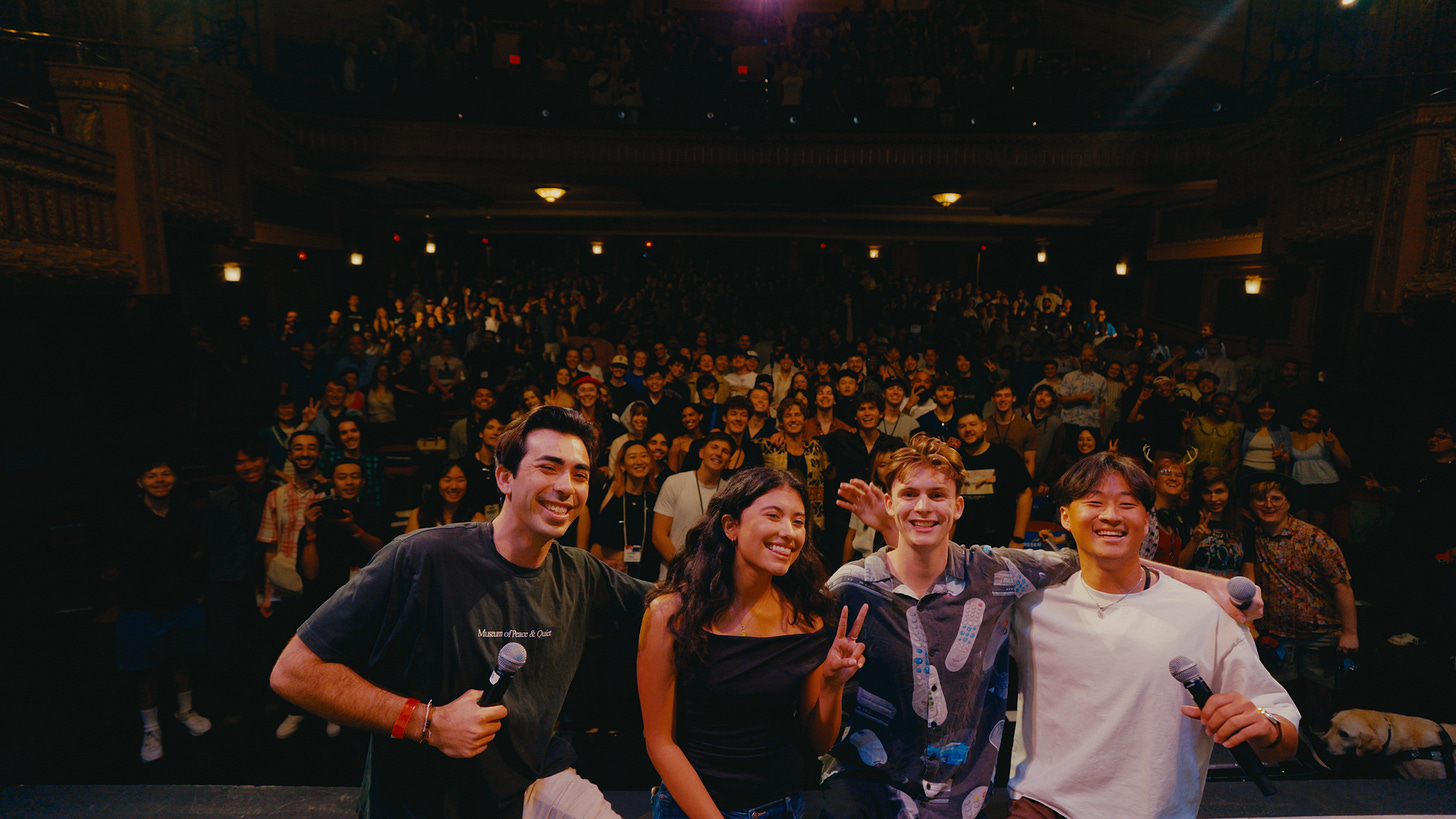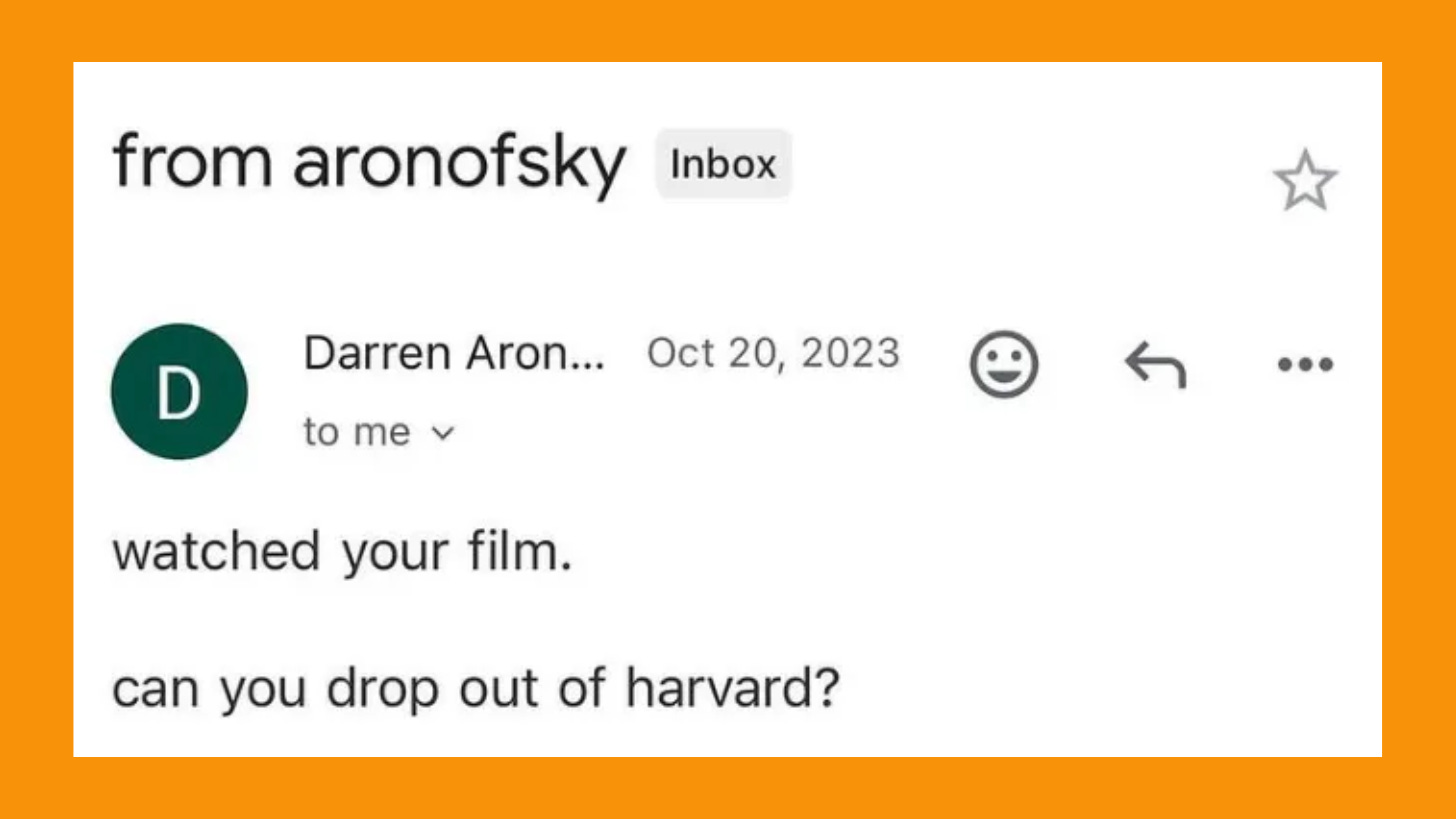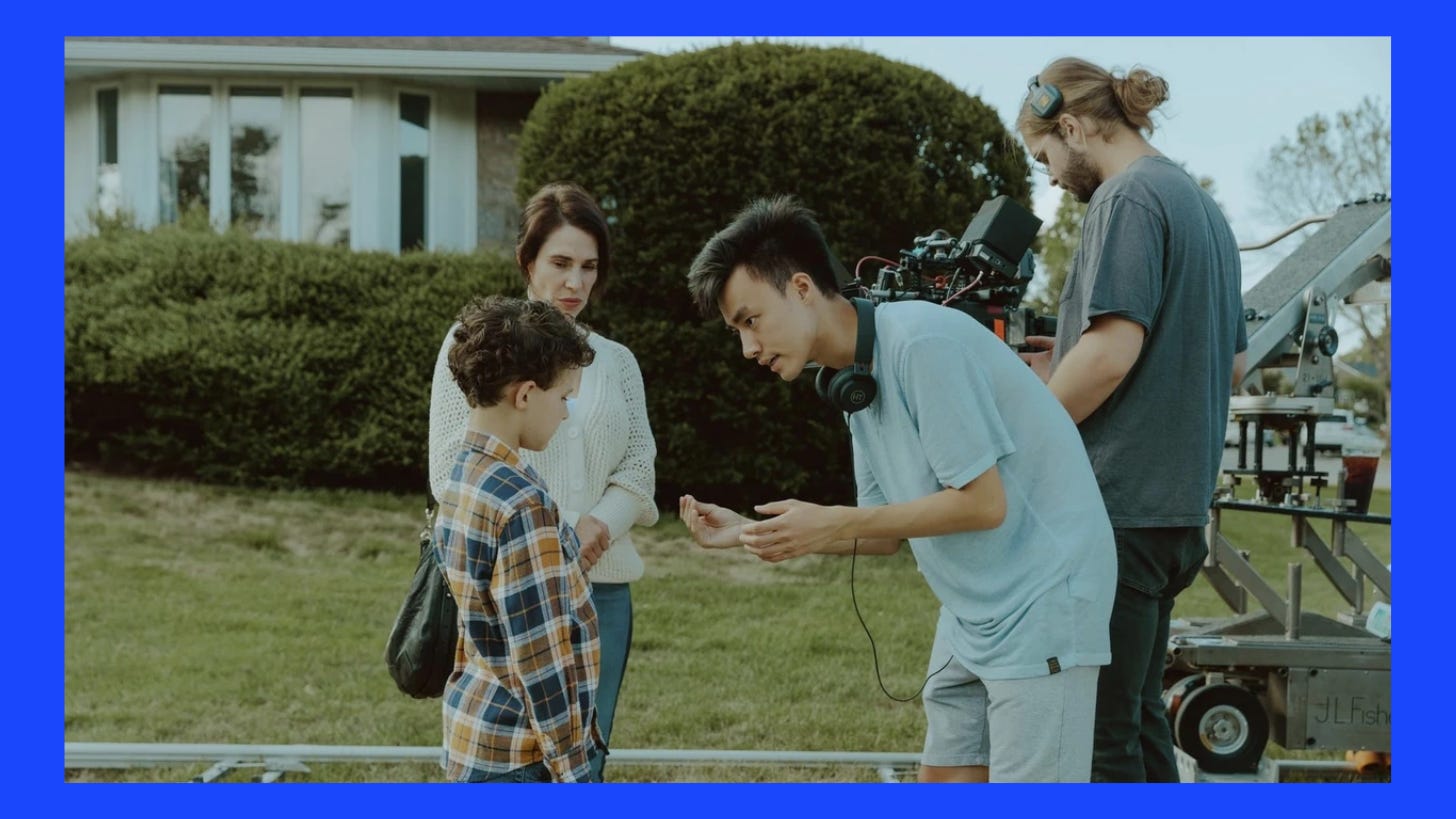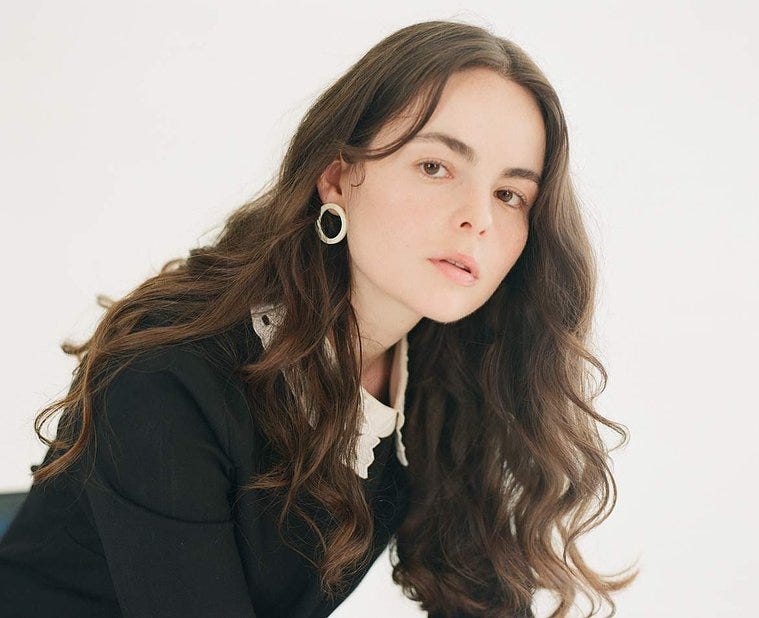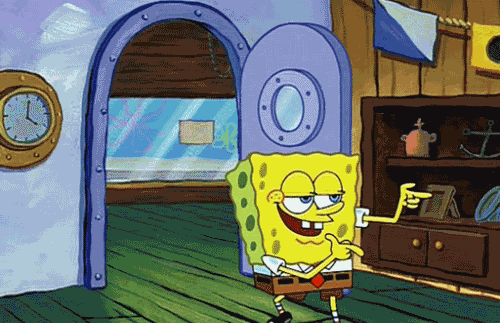Gen-Z Is Reshaping the Film Industry
Gen-Z doing what we do best--not following the rules and making our voices heard.
There was once, in a land far, far away, known as Hollywood, a time when Generation X and early millennial TV and film writers would sit in their wittle writers' room, giggling and congrauatiling one another at the thought of how wonderfully they captured the essence—the social struggles, the langue, and the spirtit of the younger generation.
But oh, how dubiously they failed. What a shame.
This style of writing aimed towards Gen-Z hasn’t disappeared completely. We still have The Summer I Turned Pretty airing its final season, and in recent years, shows like Riverdale and the Gossip Girl reboot—projects squarely targeted towards Gen-Z. Projects that attempt to capture the language and social cues of our generation, but end up stumbling with clunky dialogue and inauthentic character choices.
I say these things as a brutally honest critique—but not out of hate. I genuinely do love streaming The Summer I Turned Pretty, and I quite literally fell to my knees when the Gossip Girl reboot got cancelled. Riverdale, though? Honestly—what the fuck was that show even about?
And I can’t deny the works that did get it right—sometimes unexpectedly. Like Booksmart, written by Emily Halpern and Sarah Haskins, or Sam Levinson’s Euphoria (season 1—specifically because season 2 was… never mind), and Mindy Kaling’s comedy Never Have I Ever all managed to tap into something that actually felt authentic, or at least closer to the pulse of Gen Z.
But in recent years, the conversation has shifted. Gen-Z has begun to take its own reins in this ever-changing industry, as strikes have gone and went, industry jobs are at an all-time low, the 4.2% unemployment rate in the U.S. (as of July 2025). Oh, and I nearly forgot to mention, the looming prospect of AI invading the entertainment sphere.
Young filmmakers have had to adapt. Many are pivoting to other avenues, such as new platforms, experimenting with digital-first releases, and carving out a space in the independent sphere to fulfill their artistic dreams.
Take Creator Camp, for example. Initiated by a group of young filmmakers tired of the endless Hollywood model of regurgitated IP, the collective set out to tell fresh, unique stories by bridging the gap between online creation and the film industry. They’re still experimenting with new methods and ways to bring the ecosystem of independent filmmaking together, but their vision is clear: to platform emerging artists and propel them to new heights. Creator Camp spotlights filmmakers from all walks of life—whether it’s the first-timer shooting in their bedroom on an iPhone, or an intermediate creator experimenting with an Fx3. No matter the corner of the internet, creators they’re finding ways to platform these voices into the larger conversation of filmmaking.
Read up on their mission and see how they're contributing to the new era of filmmaking.
In a similar fashion, in early 2023, 19-year-old Wesley Wang—a Harvard economics student—wrapped up his senior-year short film, nothing, except everything. After two years of grueling effort, the film premiered at the Indy Shorts International Film Festival, where it won the Grand Jury Prize. Soon after, Wang posted it on YouTube, and it went instantly viral, amassing millions of views.
The buzz would catch the attention of acclaimed producer Darren Aronofsky, who reached out to Wang.
Aronofsky and Wang are now collaborating on a feature adaptation and will pitch the project to major studios, with Sony TriStar securing the rights. Making Wang the youngest person to be signed to direct a feature-length film by a major studio. All while he remains a Harvard economics student. What am I doing wrong in my life?
Meanwhile, a March 2025 survey of U.S. consumers highlighted a shift in viewing habits for Gen Z (born roughly 1997–2012) showcasing movies and TV shows losing relevance within this age brakcet. Platforms like TikTok, YouTube, and Instagram—where relatable creators dominate—are quickly becoming the primary channels for entertainment
According to Deloitte’s 2025 Digital Media Trends report, 56% of Gen Z say social media content is more relevant to them than TV series and movies. Comparatively, only 43% of millennials and 26% of Generation X agree with that statement.
Similarly, the majority of Gen Zers say they feel a stronger personal connection to social media counterparts than to TV personalities and actors, according to the report, which surveyed 3,595 U.S. consumers in October.
Gen Z collectively spends more time consuming media and entertainment than its elders (6.9 hours a day, versus 6.3 hours for millennials and 6 hours for Gen X), but less time watching movies and shows on TV or on streaming services.
These numbers may sound concerning in the traditional sense of the Hollywood model. But in this consumption socieal media content, it has allowed for creators like ErikDoesVFX on YouTube, William H Baker on Youtube, Jeanxvans and Michaela Wittman on TikTok. All of which have begun to carve their space in the newest era.
Take Wittman, for instance. In recent years, she tooks reins on her career and adapted her coming of age novel Remy & Arletta. She wrote the screenplay and starred in the adaption along with newcommer Riley Quinn Scott. The film, directed by Arthur De Larroche (American Bistro), follows Remy(Wittman) as she attempts to balance her turbolence relationship with her alcoholic mother (Amy Benedict) and her longtime best friend, Arletta (Scott). While Remy leans on her best friend as a coping mechanism, she learns that their co-dependent friendship is more than she realized.
The film would go on to aqquired by indie distributor Synergetic for North America. You can watch the film on Fandago and Amazon Prime Video.
If you coulnd’t see the pattern by now, the future of filmmaking—especially for the Gen Z filmmakers—are creating their own indsutry. We can expect indie films and web series breaking out in the coming years.
What makes the social media and internet-driven model so unique is its accessibility; audiences can engage directly, and creators can build careers on their own terms. It’s lucrative without forcing you to become an unlikeable version of yourself, and it fosters an intimate, immediate connection with viewers.
Think about it—when you post a film or series on YouTube, the comment section is litterally right beneath it. The conversation happens instantly. Compare that to streaming, where fans have to jump over to Twitter, Reddit, or another platform just to share their thoughts. That direct feedback loop is powerful, and it’s why Gen Z has the potential to radically reshape and uplift the filmmaking space.
I, for one, can’t wait to see it all unfold and to be part of the movement driving this change.



